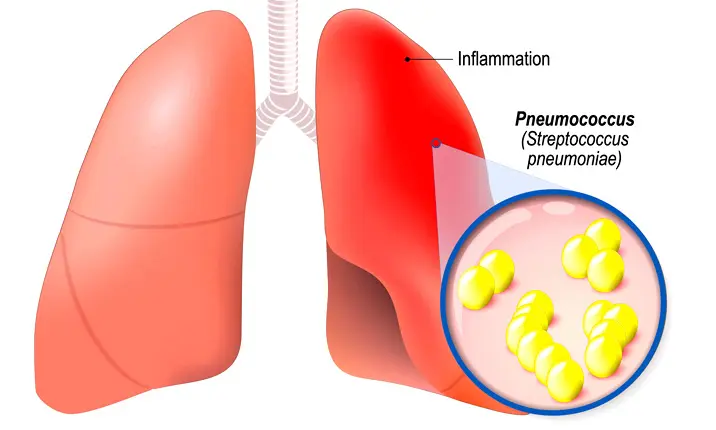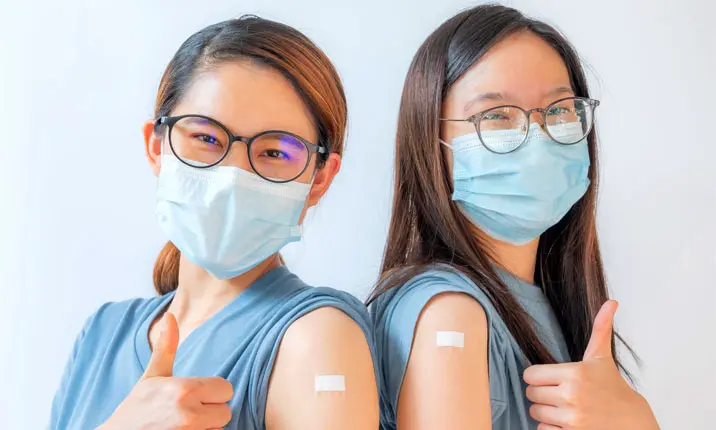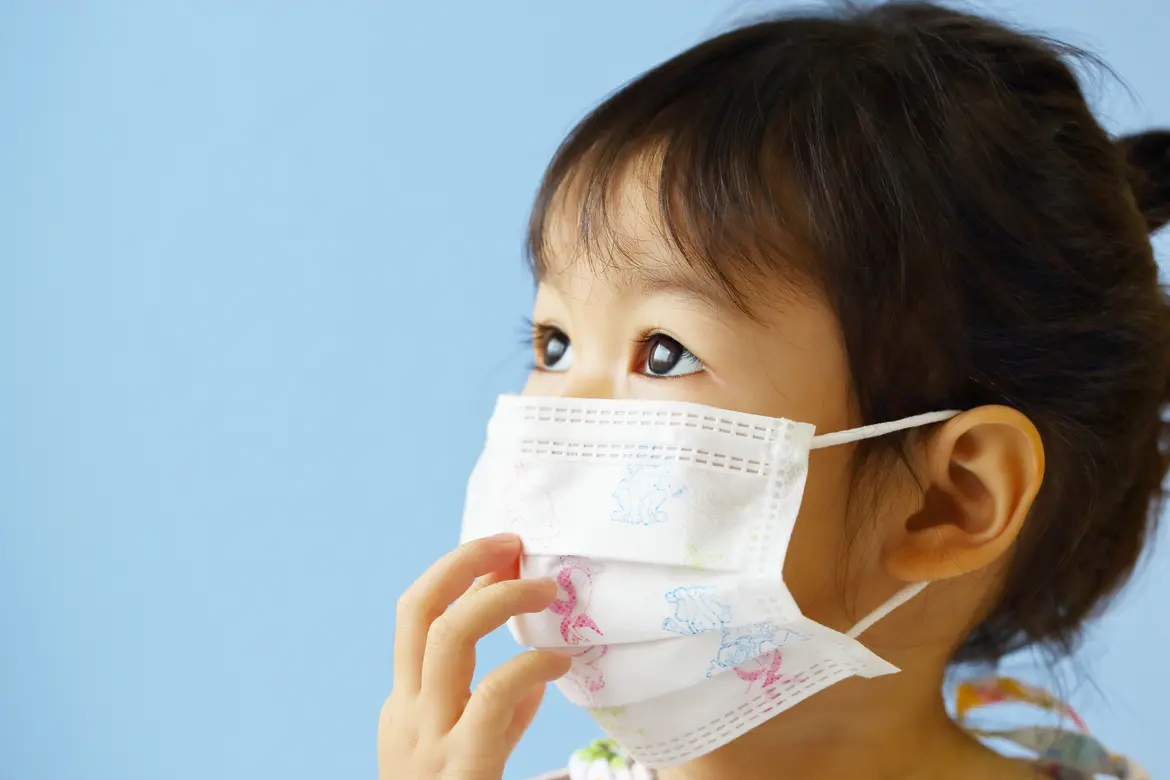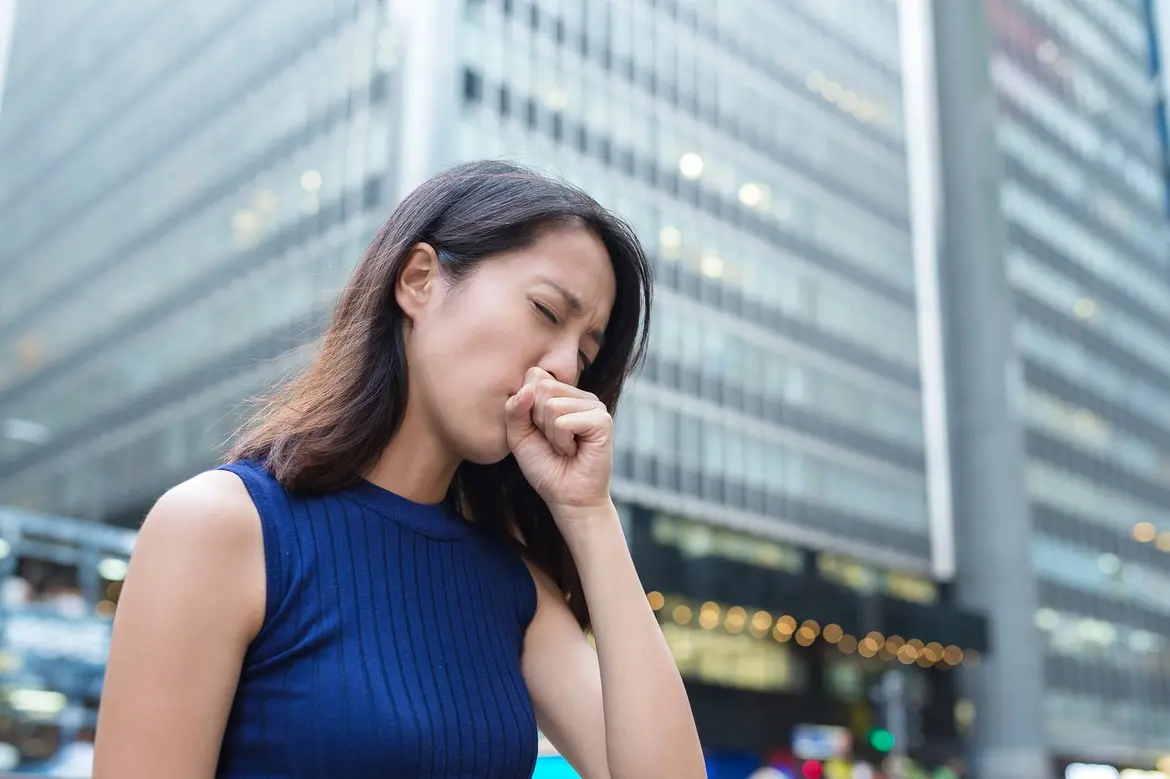-
-
Khu vực chăm sóc và điều trị


Nguồn: Getty Images
Được Bảo Vệ Bởi Vắc-xin Phế Cầu
Cập nhật lần cuối: 06 Tháng Mười 2022 | 4 phút - Thời gian đọc
Viêm phổi là một tình trạng viêm nhiễm nghiêm trọng ở phổi do sự lây nhiễm vi khuẩn phế cầu gây ra. Tìm hiểu cách thức vắc-xin phế cầu có thể hỗ trợ bạn bảo vệ bản thân và gia đình.
Viêm phổi là một dạng nhiễm trùng tại đó các túi khí trong một hoặc cả hai lá phổi bị viêm. Trong các trường hợp nghiêm trọng, các túi khí có thể bị đầy dịch hoặc mủ, tình trạng có thể dẫn đến các biến chứng nguy hiểm đến tính mạng cho người lớn tuổi và trẻ nhỏ.
Tình trạng mắc phải bệnh viêm phổi thông thường gây ra những phiền toái nặng nề, với các triệu chứng như ho nặng với đờm hoặc mủ, sốt, ớn lạnh, và khó thở.
Nguyên Nhân Và Các Nguy Cơ Của Bệnh Viêm Phổi
Trong đa số các trường hợp trên toàn thế giới, viêm phổi thường được gây ra bởi một loại vi khuẩn có tên streptococcus pneumoniae hay phế cầu. Ngoài phổi, sự lây nhiễm streptococcus pneumoniae cũng có thể ảnh hưởng đến các cơ quan khác như tai (viêm tai), xoang (viêm xoang), não và tủy sống (viêm màng não), và máu (nhiễm khuẩn huyết).
Trong các trường hợp nghiêm trọng, bệnh phế cầu có thể gây ra tình trạng mất thính lực, tổn thương não, và thậm chí gây tử vong. Do đó, điều quan trọng là những đối tượng có các yếu tố rủi ro bệnh phế cầu hoặc đối tượng có rủi ro cao mắc phải tình trạng bệnh nghiêm trọng cần được tiêm vắc-xin phòng ngừa bệnh.
Bất kể ai cũng có thể mắc phải bệnh viêm phổi do phế cầu, nhưng người lớn từ 65 tuổi trở lên là đối tượng dễ mắc phải tình trạng lây nhiễm này hơn. Các nghiên cứu cho thấy: khi được so sánh với người trẻ tuổi, người lớn từ 65 tuổi trở lên có khả năng bị mắc viêm phổi do phế cầu cao hơn gần 4 lần và khả năng phải nhập viện do viêm phổi do phế cầu cao hơn 10 lần.
Hơn nữa, người lớn tuổi - có hệ miễn dịch nói chung yếu hơn do quá trình lão hóa - dễ mắc phải bệnh phế cầu xâm lấn hơn. Điều này kéo theo các tình trạng lây nhiễm nghiêm trọng hơn, như nhiễm khuẩn huyết và viêm màng não, dẫn đến khả năng tử vong cao hơn từ 10-36% (tỷ lệ tử vong).
Các đối tượng mắc các tình trạng bệnh mãn tính (có hệ thống miễn dịch yếu hơn) cũng như trẻ em dưới 5 tuổi, đặc biệt trẻ em dưới 2 tuổi (có hệ miễn dịch vẫn đang trong quá trình trưởng thành) cũng thuộc nhóm đối tượng chịu nguy cơ mắc bệnh phế cầu cao hơn.
Các Dấu Hiệu Của Bệnh Viêm Phổi
Vi khuẩn phế cầu có thể được lây truyền thông qua tiếp xúc trực tiếp, các giọt tiết đường hô hấp phát sinh trong khi ho hoặc hắt hơi, và các vật dụng bị ô nhiễm bởi những giọt tiết lây bệnh này.
Các triệu chứng phố biến của bệnh viêm phổi do phế cầu bao gồm sốt cao, ớn lạnh và cứng khớp, đổ mồ hôi, mệt mỏi, ho, khó thở, hơi thở ngắn, và đau ngực.
Dấu hiệu và triệu chứng của bệnh viêm phổi do phế cầu có thể rất khó nhận biết ở các bệnh nhân ở độ tuổi cao, với hoặc không kèm theo tình trạng suy giảm hệ miễn dịch. Những bệnh nhân lớn tuổi này có thể biểu hiện những triệu chứng không đặc trưng, như các thay đổi về trạng thái tinh thần, bao gồm lú lẫn hoặc giảm độ tỉnh táo. Họ thậm chí có thể không gặp phải các triệu chứng thường gặp như sốt và ho.
Được Bảo Vệ Khỏi Bệnh Viêm Phổi
Vì viêm phổi do phế cầu là nguyên nhân phổ biến nhất gây ra bệnh viêm phổi mắc phải từ cộng đồng trên toàn thế giới, những đối tượng thuộc nhóm người có nguy cơ mắc bệnh cao được khuyên nên tiêm chủng vắc-xin phế cầu để tự bảo vệ bản thân khỏi sự lây nhiễm.
Có hai loại vắc-xin hiện có: vắc-xin phế cầu liên hợp (PCV13-Prevenar 13) và vắc-xin polysacarit phế cầu (PPSV23-Pneumovax23).
Vắc-xin PCV13 bảo vệ cơ thể chống lại 13 chủng vi khuẩn phế cầu thường gây bệnh phế cầu phổ biến nhất, trong khi vắc-xin PPSV23 bảo vệ cơ thể chống lại 23 chủng vi khuẩn. Ở một vài nhóm bệnh nhân được chọn lọc, PCV13 được tiêm trước PPSV23 bởi vì cách thức này mang lại sự bảo vệ được mở rộng khi so sánh với việc họ chỉ tiêm một mình vắc-xin PPSV23.
Trẻ sơ sinh cũng nên được tiêm hai liều PCV13 ở độ tuổi 4 tháng và 6 tháng, theo sau là một liều tiêm nhắc lại ở độ tuổi 12 tháng. Trẻ em bị chậm thời gian tiêm chủng nên được tiêm bổ sung cho đến độ tuổi 59 tháng.
Đối với người lớn, mỗi loại PCV13 và PPSV23 được khuyên nên tiêm một liều cho đối tượng ở độ tuổi từ 65 trở lên. Các đối tượng trưởng thành khác nên tiêm vắc-xin phế cầu bao gồm:
Các đối tượng ở độ tuổi từ 18 trở lên mắc phải các bệnh mãn tính, như bệnh phổi mãn tính, bệnh tim, bệnh thận hoặc bệnh gan, và bệnh tiểu đường.
Các đối tượng bị suy giảm miễn dịch hoặc mắc các tình trạng bệnh lý khác, chẳng hạn như đã đặt ống ốc tai điện tử hoặc rò rỉ dịch não tủy; và chức năng lá lách bất thường (bao gồm các tình trạng như bệnh hồng cầu hình liềm dạng đồng hợp tử và hội chứng kém hấp thu - coeliac).
Tại Singapore, việc tiêm chủng vắc-xin phế cầu là một phần của Lịch Tiêm Chủng Quốc Gia Cho Trẻ Nhỏ (NCIS) và Lịch Tiêm Chủng Quốc Gia Cho Người Trưởng Thành (NAIS). Tất cả người dân Singapore và Thường Trú Nhân đáp ứng các tiêu chí để được tiêm vắc-xin theo NCIS và NAIS đều đủ điều kiện được chính phủ trợ cấp cho việc tiêm chủng vắc-xin phế cầu. Bạn cũng có thể lựa chọn sử dụng MediSave (Quỹ Dự Phòng Y Tế Quốc Gia) để chi trả cho vắc-xin tại các cơ sở y tế được MediSave công nhận, như các phòng khám đa khoa và các phòng khám thuộc chương trình CHAS (Hệ thống Hỗ trợ Y tế Cộng đồng). Các phòng khám đa khoa Parkway Shenton của chúng tôi đều được MediSave công nhận.
Điều vô cùng quan trọng trong tình hình đại dịch COVID-19 hiện nay là các đối tượng thuộc nhóm rủi ro cần được tiêm chủng phòng bệnh viêm phổi do phế cầu. Lý do đến từ việc COVID-19 sẽ không biến mất trong tương lai gần, sẽ có sự gia tăng rủi ro mắc bệnh do cả COVID-19 và viêm phổi do phế cầu. Các trường hợp như vậy đã được báo cáo ở nước ngoài, và sẽ khiến việc chuẩn đoán và điều trị COVID-19 hoặc viêm phổi do phế cầu trở nên thách thức hơn.
Vắc-xin phế cầu khuẩn có sẵn tại tất cả các phòng khám Parkway Shenton, với các chương trình trợ giá dành cho chủ thẻ CHAS, Pioneer hoặc Merdeka Generation. Hãy trao đổi với bất kỳ bác sĩ nào của chúng tôi tại Parkway Shenton để tìm hiểu thêm về cách tiêm phòng phế cầu khuẩn có thể giúp bảo vệ bạn và gia đình bạn ngay hôm nay.










